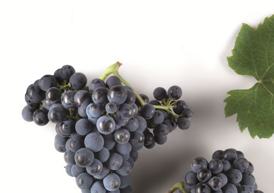WINE SPECTATOR EXECUTIVE EDITOR (1999-2021)
He began his career at Wine Spectator in 1987 and twelve years later became the Executive Editor of the prestigious American publication, as well as its chief taster of Spanish wines. At the end of last year, he announced his retirement to become a 'retired journalist'.
How rapidly have you got used to defined yourself as a “ retired journalist”? This new stage of your life, how are you facing it?
So far, I’m quite happy to be a retired journalist; after 34 years with Wine Spectator, I’m free of the publication’s relentless deadlines. I haven’t decided on next projects yet. However, I hope to remain part of the community of wine, on less formal terms.
Now, enjoying a bottle of wine, and not having to “examine” it, does it change the way you enjoy the wine, or do you still rate it mentally?
Wine remains part of life, of course, though I’m cutting back a bit. But while I’m no longer formally reviewing, I’ll never stop analysing what I’m tasting. Reflection is a big part of the pleasure, whether of a glass of wine, a home-cooked meal or an engaging book.
You started at Wine Spectator back in 1988, and in 1999 you became Executive Editor. How has the publication changed in the last three decades?
The biggest change in Wine Spectator came in 1993, when Marvin R Shanken transformed a tabloid newspaper into a wine lifestyle magazine. The publication, now the most widely-read in the world, is still following his original vision. My principal goals were to maintain the highest levels of accuracy, fairness, expertise and integrity.
Your work coincided with the awakening of Spanish wine in the American market in the 1990s. Has Spain been one of the world's most evolved wine-producing countries in recent years?
I had the privilege and pleasure of being Wine Spectator’s lead taster for the wines of Spain for more than 25 years. In my opinion, no other European country evolved so dramatically, or improved so remarkably, in that time.
Does the American consumer recognize today the noticeable quality increase of Spanish wine?
The sales of Spanish wine in the US remain within a fairly small, narrow range, suggesting there is a core audience but not broad awareness. However, the improvement in restaurant wine lists when it comes to the Spanish selections is a promising sign of greater understanding and interest.
How do you win over the American consumer? What are the appropriate strategies?
Quality and value are the two fundamentals. Communication that helps engage consumers and encourage trial is also important. In my experience, I can find a Spanish wine to satisfy pretty much any taste a wine lover may prefer.
The evolution of the Spanish gastronomy is noticeable worldwide, also in the U.S Do you think the Spanish wine has missed this opportunity?
Spanish gastronomy has indeed achieved worldwide recognition. But in the US, there are still too few Spanish restaurants (with the notable exception of chef Jose Andres). There’s plenty of opportunity for Spanish cuisine in the US, and that’s good news for Spanish wine.
Rioja wine continues to be the undisputed number one Spanish wine in terms of recognition and sales in the U.S. Are other wine regions still too far behind?
Rioja is clearly the leading wine region in Spain. But I wouldn’t say that other wine regions are “far behind.” There are delicious wines produced all throughout the country. They will gain recognition with time.
In recent years, several Rioja wine has been on the top your list, as best of the year, including Gran Reserva 890 from 2005, 4th place in 2018. Do you think that presence will only get bigger and bigger?
I’m retired, so I won’t have any influence on that! But I believe that Spain will continue to improve, refine, enliven its wines, and more wine lovers will explore these diverse styles.
Wine Spectator has just announced that Senior Editor Alison Napjus will take over as the new Spanish rater. How do you value this appointment? Have you already given her any advice?
Alison has been with Wine Spectator for more than 20 years; she has my highest recommendation. While her main tasting beats have been in France and Italy, she is quite familiar with Spain and has already reviewed Cava and the still wines of the northeast. She has asked for my advice, but she doesn’t really need it!
How do you evaluate the historical trajectory of La Rioja Alta, S.A.?
Wineries like La Rioja Alta are the reason I have so much enjoyed being part of the wine community. The company’s deep roots and family ownership have made it a true leader. Its experience has led to creativity and constant improvement, while its values have kept it faithful to its traditions. The wines have long been beautiful, and so they remain.
Do you have any special memories of any wine from La Rioja Alta, S.A.?
I have enjoyed too many excellent bottles from La Rioja Alta to single any of them out. Overall, they leave a vision of balance, harmony and elegance, a true expression of the culture of Rioja.
Lastly, will we soon see you travelling around Spain, without the pressure of having to taste hundreds of wines?
Once the pandemic finally sets us free, Spain will be at the top of my list for a friendly visit. I have been travelling to the country since 1978, and I always hope for another taste.






















